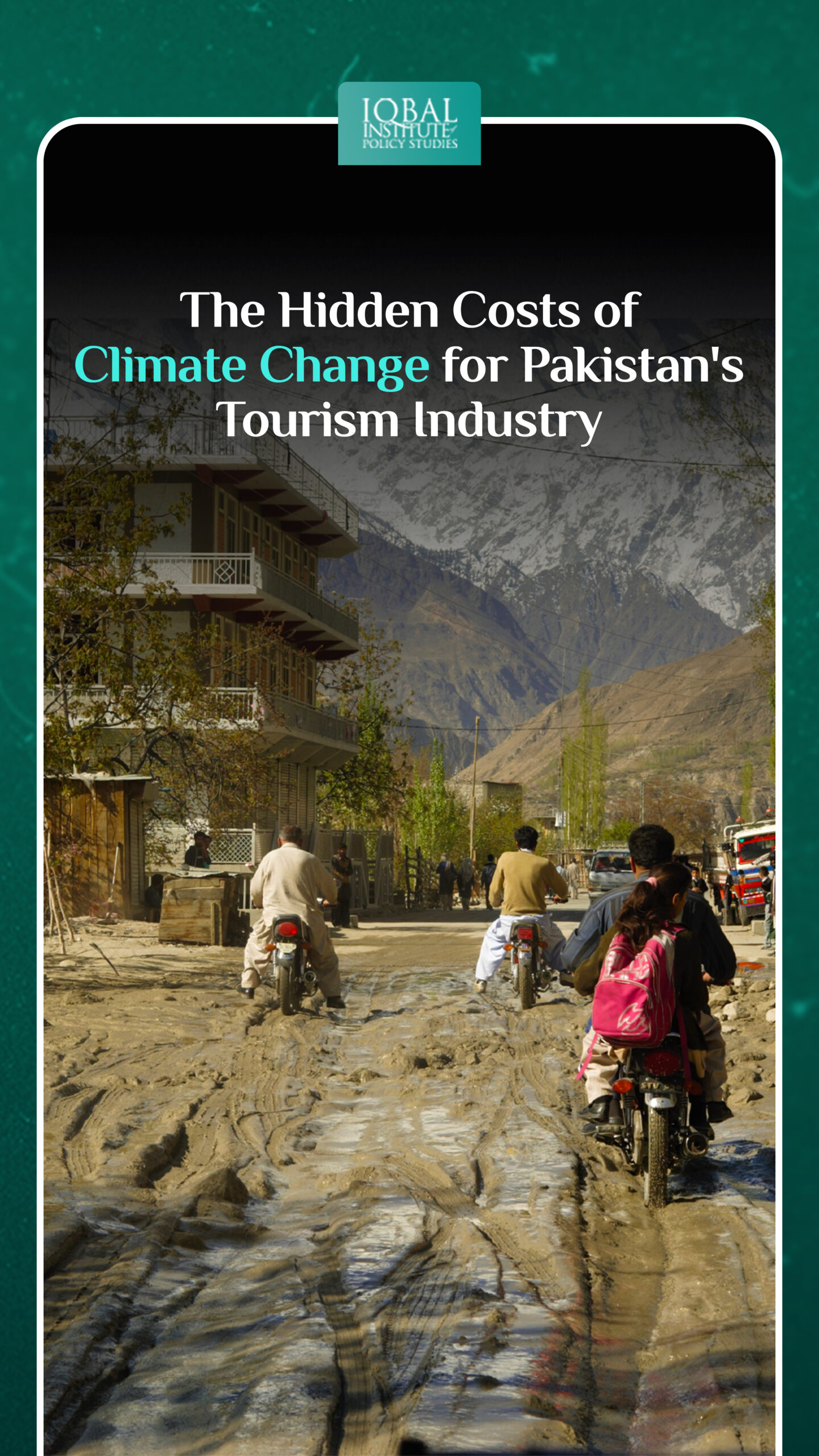Pakistan’s tourism industry has been gaining recognition for its stunning landscapes, rich culture, and historical sites. However, climate change presents an imminent threat to this promising sector. While many are aware of the severe weather events and natural disasters that climate change can bring, the hidden costs of this global phenomenon for Pakistan’s tourism industry are often overlooked. In this comprehensive blog, we will explore the various ways in which climate change is affecting Pakistan’s tourism industry and the measures that need to be taken to mitigate these impacts.
Melting Glaciers and Water Scarcity
The northern regions of Pakistan, particularly Gilgit-Baltistan, are renowned for their breathtaking glaciers, which have always attracted adventure seekers and nature lovers. However, climate change is causing these glaciers to melt at an alarming rate. As these glaciers retreat, they not only affect the availability of freshwater resources but also disrupt adventure tourism activities like trekking and mountaineering. Water scarcity in these areas can lead to decreased tourism, reduced agricultural productivity, and hardships for the local communities.
Changing Weather Patterns
Climate change is causing shifts in weather patterns, which can result in unpredictable and extreme weather conditions. This poses a significant challenge to the tourism industry, especially in mountainous regions where roads can become impassable due to landslides, heavy snowfall, or flash floods. Tourists may be deterred by the uncertainty and danger associated with these conditions, affecting the number of visitors and revenue generated.
Impact on Biodiversity and Ecosystems
Pakistan is home to diverse ecosystems, from its coastal areas to its mountainous regions. Climate change is leading to habitat destruction, shifts in migration patterns of wildlife, and disruptions in the breeding cycles of many species. These changes make it increasingly difficult for tourists to spot rare and endangered animals, impacting the appeal of wildlife tourism. Moreover, as ecosystems deteriorate, so does the overall aesthetic and ecological value of these destinations.
Rising Temperatures and Health Risks
Increased temperatures due to climate change can have adverse effects on tourism. In many parts of Pakistan, extreme heatwaves are becoming more common. These conditions not only discourage tourists from venturing outdoors but also pose health risks to those who do. Heat-related illnesses can lead to increased healthcare costs and a decline in the overall well-being of tourists.
Beach Erosion and Coastal Attractions
The beautiful coastal areas of Pakistan are under threat due to rising sea levels and beach erosion, which can severely affect the tourism industry. Iconic beach destinations like Karachi and Gwadar are at risk of losing their charm. The cost of restoring and maintaining these areas is a burden on the government, which could otherwise invest in promoting tourism.
Mitigating the Hidden Costs
To mitigate the hidden costs of climate change for Pakistan’s tourism industry, a multi-faceted approach is required:
Sustainable Tourism Practices
Encourage sustainable tourism practices, including responsible waste management, energy conservation, and wildlife protection, to reduce the industry’s carbon footprint.
Infrastructure Development
Invest in resilient infrastructure that can withstand extreme weather events, ensuring that tourists can access destinations safely and comfortably.
Climate Adaptation and Preparedness
Develop and implement climate adaptation and preparedness strategies for the tourism sector to address the challenges posed by changing weather patterns.
Conservation Efforts
Prioritize conservation and restoration efforts to protect natural attractions and biodiversity, which are the foundation of the tourism industry.
Public Awareness
Raise awareness among tourists and local communities about climate change and its impacts on tourism. Encourage sustainable practices and responsible tourism.
Government Initiatives
Implement policies that promote sustainable tourism and allocate resources for climate change mitigation and adaptation in the tourism sector.
Conclusion
Climate change poses significant hidden costs to Pakistan’s tourism industry, affecting the country’s natural beauty, cultural heritage, and economic prospects. It is crucial for the government, tourism stakeholders, and the general public to recognize the urgency of addressing these challenges and take collective action. By embracing sustainable practices, investing in resilient infrastructure, and protecting natural assets, Pakistan can continue to thrive as a tourist destination while safeguarding its environment for future generations. Climate change is a global issue, and only through concerted efforts can we protect Pakistan’s diverse and enchanting tourist destinations from its harmful effects.
This article is written by Radma Nouman. Radma is a research analyst at the Iqbal Institute of Policy Studies (IIPS).



Leave a Reply